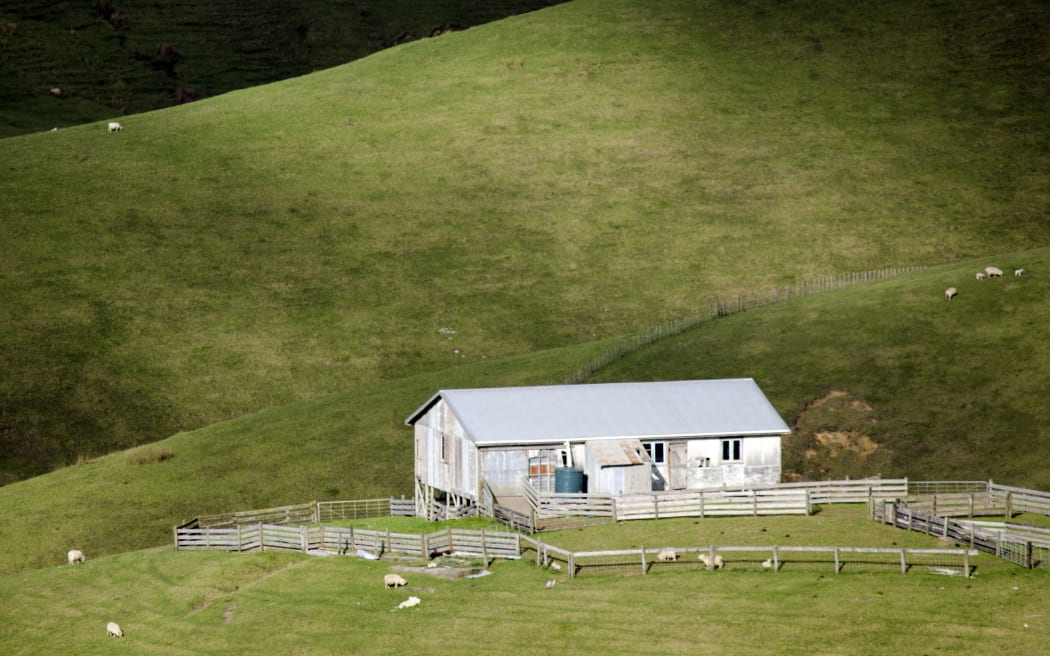More rural people dying at a younger age than urban dwellers - research

Warning: This story discusses suicide.
For the first time, it has been confirmed that more rural people are dying at a younger age than urban dwellers.
Research led by University of Otago Professor Garry Nixon shows twice the number of under 30-year-olds living in rural areas die compared to those in cities.
It flies in the face of existing data saying the opposite and is the strongest evidence yet that rural New Zealanders have poorer health outcomes than city dwellers.
Nixon, who specialised in rural health and was also a rural doctor at the hospital in Clyde, said a number of mortalities were from suicide or injuries.
However, he did not want younger farming folk to curb their outdoor activities as a result of the findings.
"I would hate for them to stop enjoying the rural lifestyle, I think I think that that's really important," he said.
"But they probably should be aware that they are a bit more at risk than their urban peers, and they certainly shouldn't ignore health problems, and they should certainly should make the effort to seek the advice of a health professional if they have any issues."
He said the research looked at every death over a five-year period and the results showed many of the fatalities in rural areas were preventable.
"It does include, for example, heart attacks and strokes, which are potentially preventable with really good management of blood pressure or high cholesterol or those sorts of things.
"But it also does include all injury-related deaths, including from things like motor vehicle accidents or farm accidents, and those those sorts of things."
Nixon said one of the subgroups of amenable mortality was in suicide rates for rural areas.
"We do have a little bit of early data confirming what has been suspected in the past, for me anyway, that suicide rates are higher in rural areas."
He said there were fewer deaths of elderly people in rural areas, which he attributed to people moving to cities to be nearer to healthcare facilities and family as they got older.
The next step was for authorities to develop a decent national rural health policy to further support those in rural areas, Nixon said.
Where to get help:
Need to Talk? Free call or text 1737 any time to speak to a trained counsellor, for any reason.
Lifeline: 0800 543 354 or text HELP to 4357
Suicide Crisis Helpline: 0508 828 865 / 0508 TAUTOKO (24/7). This is a service for people who may be thinking about suicide, or those who are concerned about family or friends.
Depression Helpline: 0800 111 757 (24/7) or text 4202
Samaritans: 0800 726 666 (24/7)
Youthline: 0800 376 633 (24/7) or free text 234 (8am-12am), or email [email protected]
What's Up: free counselling for 5 to 19 years old, online chat 11am-10.30pm 7days/week or free phone 0800 WHATSUP / 0800 9428 787 11am-11pm Asian Family Services: 0800 862 342 Monday to Friday 9am to 8pm or text 832 Monday to Friday 9am - 5pm. Languages spoken: Mandarin, Cantonese, Korean, Vietnamese, Thai, Japanese, Hindi, Gujarati, Marathi and English.
Rural Support Trust Helpline: 0800 787 254
Healthline: 0800 611 116
Rainbow Youth: (09) 376 4155
OUTLine: 0800 688 5463 (6pm-9pm)
Help with alcohol and drugs
Alcohol Drug Helpline: 0800 787 797
Drug Help website
If it is an emergency and you feel like you or someone else is at risk, call 111.